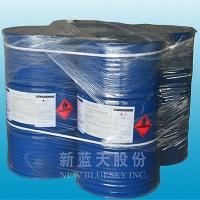-
Categories
-
Pharmaceutical Intermediates
-
Active Pharmaceutical Ingredients
-
Food Additives
- Industrial Coatings
- Agrochemicals
- Dyes and Pigments
- Surfactant
- Flavors and Fragrances
- Chemical Reagents
- Catalyst and Auxiliary
- Natural Products
- Inorganic Chemistry
-
Organic Chemistry
-
Biochemical Engineering
- Analytical Chemistry
-
Cosmetic Ingredient
- Water Treatment Chemical
-
Pharmaceutical Intermediates
Promotion
ECHEMI Mall
Wholesale
Weekly Price
Exhibition
News
-
Trade Service
The chemical industry plays a critical role in the production of various products that we use in our daily lives.
One of the key raw materials used in this industry is glass, which is a common component in many chemical products.
Glass is used in various forms, including containers, pipes, and tubing, and is often used in the production of chemicals and other products.
There are two main categories of products in the chemical industry that use glass as a raw material: upstream and downstream products.
Upstream products are those that are directly involved in the production of chemicals, while downstream products are those that are derived from the chemicals produced in the upstream process.
Upstream Products
Upstream products are those that involve the direct production of chemicals using glass as a raw material.
One of the most common upstream products is glass-lined equipment, which is used in the production of various chemicals.
Glass-lined equipment is used in reaction vessels, distillation columns, and other equipment used in the chemical production process.
The use of glass-lined equipment offers several advantages in the production of chemicals.
For example, it provides a smooth and impermeable surface that is resistant to corrosion, which makes it ideal for use in the production of chemicals that are corrosive or reactive.
Additionally, glass-lined equipment is resistant to heat and can withstand high temperatures, which makes it ideal for use in the production of chemicals that require high temperatures to produce.
Another upstream product is glass-made packaging for chemicals.
Chemicals are often stored, transported, and sold in glass containers, which provide a reliable and safe method of storing and transporting these products.
Glass packaging is resistant to corrosion, which makes it ideal for storing chemicals that are corrosive or reactive.
Additionally, glass packaging is lightweight and durable, which makes it ideal for transporting chemicals over long distances.
Downstream Products
Downstream products are those that are derived from the chemicals produced in the upstream process.
One of the most common downstream products is glass-made laboratory equipment.
Laboratories use a wide range of glass-made equipment, including glassware, pipettes, and test tubes, which are used in various experiments and tests.
Another downstream product is glass-made optical fiber.
Optical fibers are used in communication systems, including telecommunications and the internet, and are made from glass.
Glass optical fibers are flexible, lightweight, and can transmit signals over long distances, making them ideal for use in communication systems.
There are also various other downstream products that use glass as a raw material, including glass-made solar panels, glass-made furniture, and glass-made decorative items.
The Role of Glass in the Chemical Industry
Glass plays a critical role in the chemical industry, both in the upstream and downstream processes.
It is a versatile raw material that is used in a wide range of products, from laboratory equipment to packaging and storage containers.
Glass-lined equipment is used in the production of various chemicals, while other downstream products, such as glassware and optical fibers, rely on glass as a raw material.
The use of glass in the chemical industry offers several advantages.
For example, it is resistant to corrosion and heat, which makes it ideal for use in the production and storage of chemicals.
Additionally, it is lightweight and durable, which makes it ideal for transportation and storage.
Despite these advantages, the use of glass in the chemical industry also presents some challenges.
For example, glass-lined equipment can be difficult to repair if it is damaged, which can lead to costly downtime.
Additionally, the production of glass requires a significant amount of energy and resources, which can have a negative impact on the environment.
Overall, the use of glass in the chemical industry is critical to the production and storage of various chemical products.
It offers several advantages, including resistance to corrosion and heat, durability, and lightweight.
However, it also







